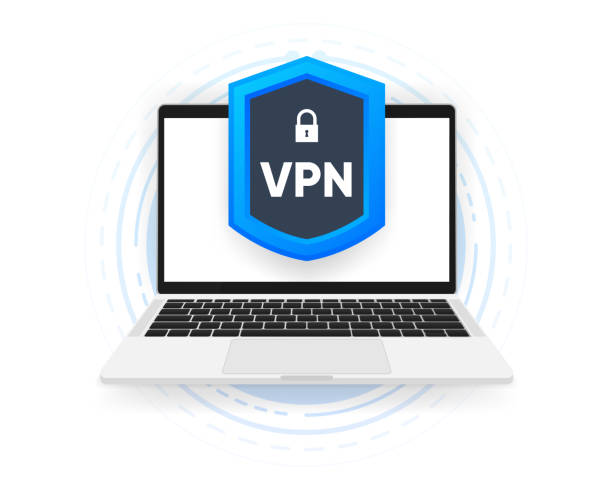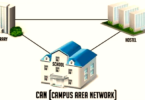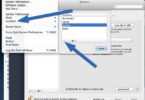What Is a VPN and How Does it Work?
VPNs create a virtual private network tunnel around your data and information as it travels over the internet, protecting it from being intercepted by hackers and anyone snooping on local networks.
Without a VPN, anyone can view your IP address and see where you live or what products or services you search online. This could lead to price discrimination when an e-commerce website charges different prices depending on where the customer lives.
Protects Your Privacy
Now that net neutrality has faded into history and government surveillance has increased exponentially, it is more important than ever to take steps to protect your privacy online. A VPN is one effective way of doing just this; it encrypts data while you browse online so it can’t be read by outsiders, keeping your browsing history, purchases, and personal details safe while using public Wi-Fi or at work.
As soon as your device connects to the internet, its IP address becomes unique to it. Websites use this address to determine your location and identify your device; web browsers could store a history of your search data that could later be used against you in targeted ads, but VPNs prevent such targeting by encrypting data and assigning you an IP address that doesn’t tie back directly to it.

What Is a VPN and How Does it Work?
Price discrimination can also be avoided through VPN protection, where online retailers charge different prices to people in different regions for identical goods and services. When websites detect that users in certain regions are searching for products or services, they display higher prices accordingly; with VPN encryption, your data, and giving an IP address located outside any country that practices price discrimination, they can protect you from this.
Use a VPN to keep your internet service provider from accessing your browsing history on home networks. Many providers offer multiple simultaneous VPN connections to protect both phones and tablets, as well as laptops and desktop computers, from unwanted eyes.
If you want to take an extra precautionary measure, set your VPN so it automatically disconnects if your connection drops – this will protect against being lured into an ad or malware attack should your phone or tablet lose connectivity with the internet and stop this occurring if using public Wi-Fi or unsecured mobile networks. This is also an ideal strategy when traveling abroad or using insecure mobile networks such as 4G/LTE mobile networks.
Encrypts Your Data
Many people don’t realize their information is constantly transmitted online. When browsing the web, your activity leaves an electronic trail, which could be monitored by anyone with access to your network (including hackers). A VPN encrypts data, so even if someone were to gain access and steal your PII, they would not be able to use it to steal or falsify identities.
When connecting to a VPN service, your data travels through an encrypted tunnel provided by a remote server of the company that hosts it before being sent off to its target website. Once arrives there, decrypted content is matched up with your unique virtual private network address, which is only visible by that server.
As well as protecting your data, a reliable VPN can also hide your IP address, making sure if you visit questionable sites, they can’t track back to you or your home IP. Furthermore, this protects from price discrimination, which occurs when e-commerce websites adjust prices according to factors like location or demographic information.
VPNs also come equipped with location masking features, which allow your device to appear to be located somewhere else. This feature can come in handy if you want to watch videos only available in certain countries or live somewhere with strict internet censorship regulations.
VPNs work across multiple devices so that you can have one account to protect all the devices on which you browse the web. This feature can be particularly handy if you use multiple devices for online surfing simultaneously, like a laptop, smartphone, or tablet.
In the US, your ISP has a legal right to view and sell all of your browsing history, regardless of whether it takes place on personal devices or public networks. A VPN protects users by routing their browsing data through an encrypted server for routing purposes – thus protecting privacy by not revealing search terms used or where searches originate from.
Hides Your IP Address
VPNs allow users to hide their IP address when browsing websites, protecting themselves from hackers, advertisers, and other fraudsters by giving away their location. Once connected to a server of choice via a VPN connection, websites that you visit see your connection coming from that particular IP address as your IP is encrypted, so it’s hard for snoopers to gain access.
VPNs can also protect you from location-based tracking. Since most websites can track our online activity to tailor ads and content specifically to our browsing habits, many people turn to a VPN in order to avoid this type of tracking.
Your Internet Service Provider (ISP) may also keep track of your digital footprints and sell that information to third-party sellers. VPNs prevent ISPs from doing this by encrypting data – meaning the ISP only sees incoherent data and your VPN’s IP address as visible information.
VPNs can also help you access content that would otherwise be blocked, like in countries with restricted internet access, by appearing to connect from another location and masquerading with one that provides more freedom and less restriction.
VPNs can also be utilized by businesses to give remote employees secure access to company resources online, making it appear as though you are connecting from a work computer rather than your personal one. They’re also popular among universities where students and researchers must frequently access university resources from home computers – however, using one may prove challenging without adequate equipment and knowledge of networking.
Allows You to Access Restricted Content
Cybercriminals can easily exploit your sensitive data when surfing over an unsecured network, including banking login credentials, emails and messages sent over social media, and personal data you share via public WiFi networks. When connecting to a VPN server, however, your data is scrambled into code before being transmitted back out through an encrypted tunnel before eventually being decrypted at its final destination and transmitted back directly back to your device or app.
As with any form of data protection, VPN use should still be carefully used when browsing sites and services with it. Large companies often track your browsing habits to provide personalized ads and localized experiences – which may prove frustrating if your goal is privacy when browsing online. Travelers can further protect themselves by using a VPN when booking airfare or hotel rooms – using such measures will prevent price discrimination, which might otherwise arise depending on factors like device type, demographic information, and location.
To establish a secure connection between your computer and a VPN server, the VPN authenticates you by creating a cryptographic key to encrypt and decrypt data. Next, it creates a tunnel to route data through and hide your IP address from the public internet – leaving no one the ability to discover who you are through your internet traffic. Some VPNs also encrypt data before transmitting it in such a format that it can only be understood by its intended recipients.
Imagine that your package is traveling on a highway, protected with bubble wrap, and sent through the postal service; its address remains identifiable even once delivered. Your information will similarly be encrypted while traveling between the VPN server and the client, so only its intended recipient (you) will be able to read it.




